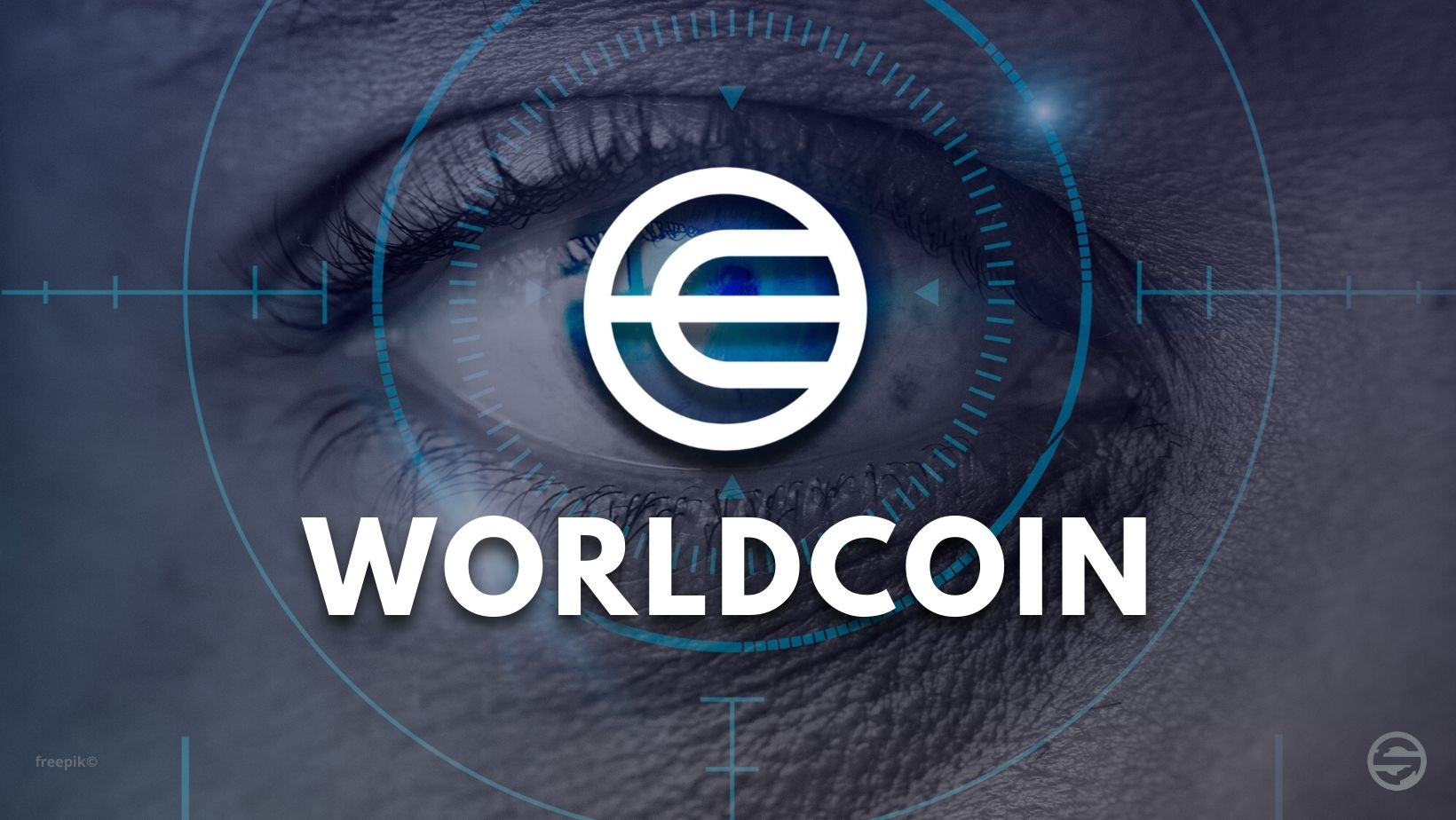
Table des matières
The initiative aims to revolutionize access to the global economy, while guaranteeing fair distribution of cryptocurrency, in the broadest sense, to all human beings. However, the project has raised serious concerns among notorious individuals such as Vitalik Buterin, co-founder of Ethereum, and Edward Snowden, the whistleblower who exposed mass surveillance programs in the USA and Great Britain. Indeed, to obtain a World ID, which entitles everyone to receive a set quantity of WorldCoin, you need to have your iris scanned by a spherical object called an "Orb".
In this article, we take a look at the key aspects of the WorldCoin project, its aims and implications, and the reactions to its launch.
The WorldCoin project is based on three pillars
Founded in 2019 by Alex Blania, Max Novendstern and Sam Altman, the main raison d'être of the WorldCoin project, currently managed by the THF (Tools For Humanity) company, is to make the global economy accessible to all human beings thanks to the WorldCoin token. The project is based on the following three pillars:
1. WorldCoin token (WLD)
WorldCoin token was launched in response to the unequal distribution of cryptocurrencies around the world, as blockchain and cryptocurrency technologies become more widespread. WorldCoin's ambitious goal is to become the global reference currency, accessible to anyone on the planet, regardless of their origin or financial situation. In addition to serving as an exchange currency, the WorldCoin token will also have a governance role within the decentralized financial system it aims to build.
2. World ID
In a world where artificial intelligence (AI) is becoming increasingly important, the World ID was created to solve the growing problem of online identification. It acts as a global digital identity, guaranteeing that each person is indeed a unique human being. This "proof of personhood" responds to the growing need to distinguish humans from AIs in a context where AI generates online content. To create their profile and obtain their World ID, individuals will need to scan their eyes using the Orb device.
3. World App
This application, designed as a digital wallet, enables WorldCoins and other cryptocurrencies to be stored and exchanged. It is already available on Android and iOS systems.
Objectives and implications of WorldCoin project
The WorldCoin project has a number of ambitious goals. First and foremost, it aims to democratize the use of cryptocurrencies and facilitate access to the Web3 by creating a decentralized, universally accessible financial system. With this in mind, WorldCoin aspires to resolve the unequal distribution of cryptocurrencies by offering a defined quantity of WorldCoin tokens. According to Sam Altman, this "universal income" could help offset future job losses linked to artificial intelligence.
However, the identity verification process, which requires an iris scan to obtain World ID and retrieve a WorldCoin airdrop, raises privacy concerns. The biometric sensor named Orb is used to scan a person's iris and create a unique code. If this valuable data is mismanaged or compromised, it could pose problems such as identity theft or widespread surveillance, for example.
TFH, the company behind the project, has stated that it is aware of these concerns and is striving to strike a balance between advanced iris scan technology and respect for individual rights.
Reactions after WorldCoin launch
To date, over 2 million people have already had their irises scanned to obtain their World ID digital passport and retrieve their WorldCoin airdrop. This situation is giving rise to divergent opinions and investigations by European and French regulators, notably the National Commission for Information Technology (CNIL in French).
On the one hand, Edward Snowden criticizes the WorldCoin project and expresses his concerns about the large-scale collection of biometric data. In his view, the project is creating a global database of iris scans with no regard for the potential consequences for privacy and security.
On the other hand, Vitalik Buterin believes that solutions like WorldCoin, which aim to distinguish humans from machines as AI advances, can be useful in countering a concentration of power and strengthening decentralized governance. However, Buterin also raises concerns about privacy, centralization within the company behind WorldCoin and security.
As for ongoing investigations, France's independent administrative authority CNIL has opened an inquiry into WorldCoin, in coordination with the German authorities, due to concerns about the legality of biometric data collection and the conditions under which this data is stored.
Finally, the WorldCoin project is already under the scrutiny of European regulators, who are closely examining the practices of this cryptocurrency. The methods deployed by WorldCoin to promote its project are raising questions, with some people raising doubts about a possible strategy centered on financial incentives.
Conclusion
In conclusion, the WorldCoin project spearheaded by Sam Altman is undoubtedly ambitious, aiming to democratize access to cryptocurrencies while offering an innovative solution to the problems of digital identity in an ever-changing world, particularly with the rise of artificial intelligence. However, it is generating significant debate over its iris scanning requirements, raising legitimate concerns about privacy and respect for individual rights. Before developing this project any further, careful thought needs to be given to security measures, privacy implications and user rights.
Ultimately, it would seem that reconciling technological advances with an inclusive, fair and privacy-friendly approach to building a better, more responsible digital world is proving to be a major challenge.
Also check out our recommended article, which has been read by other readers interested in this topic: Most popular sectors and cryptocurrencies in 2023



 Web3, Crypto
Web3, Crypto 2023-07-30
2023-07-30
